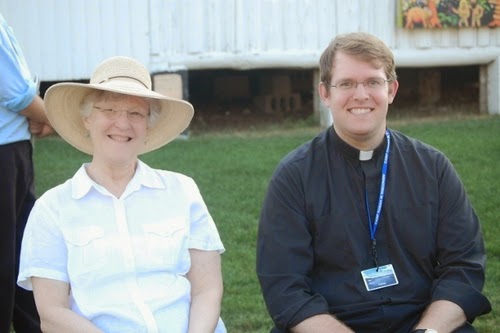
Sister of Sion talks about her experience of interfaith dialogue with Jewish people
Mary Ellen Coombe, sister of Sion, is the associate director of the Office for Ecumenical and Interreligious Affairs in the Archdiocese of Chicago. She shares her experience visiting Camp Ramah:
(The mission of the Ramah Camping Movement is to create and sustain summer camps and Israel programs and develop a generation of Jewish professional leaders.)
“My years of visiting Camp Ramah have been a great learning experience for me. Years ago, I set off to camp to learn about you and to tell you about me and my Catholic community; it was as simple as that. In those first years, we devised “programs,” and we still do, but I quickly learned that it was much more about the relationships we developed and about who we are as religious persons and communities and how we talk about ourselves. So my participation at morning prayer with campers, living the rhythm of Shabbat, giving a d’var Torah, learning to sing with you in Hebrew, just hanging out are very important elements of camp time.
I have to say that Jewish young people are very curious, and your culture of asking questions makes it easy to have conversations about God. Wherever we begin, we almost always end up talking about God. They are also curious about “nun stuff”—about why I live this way, and about what it means. We always have a great discussion about God calling Moses, Samuel, Isaiah, and even us today. They are also curious about why I come to morning prayer, since I’m not obligated to do so. They want to know why I fast with them at Tisha Be’av. The questions never end, and I love that. There is no way for me to answer them without talking about God.
Adult conversations are more complicated, I think. We are more aware that we carry the burden of the history of Jewish-Christian relations and experiences of anti-Semitism. That means we can also carry the hope for transformation. The relationships we have developed over time allow us to share more of our faith—not only with words but also with our presence in sacred moments of prayer or study together. I remember one such moment of conversation—about “marking” events in our lives, about the ways in which our communities interpret our lives in the frame of God’s action in our midst. Do we believe that? What about saying a sheheheyanu when you make that first swim to the island in the middle of the lake? How does it change us if we do those things that have been given to us as part of our traditions? What is our responsibility to open up possible interpretations for our campers? As you can imagine, this was a lot of GodTalk and even, or especially, when our voices were different or we could not grasp what the other was saying, it was a stimulating dialogue full of respect and hope.”
Click here to read the complete story.
Sources: Camp Ramah; Davidson Graduate School of Jewish Education.

